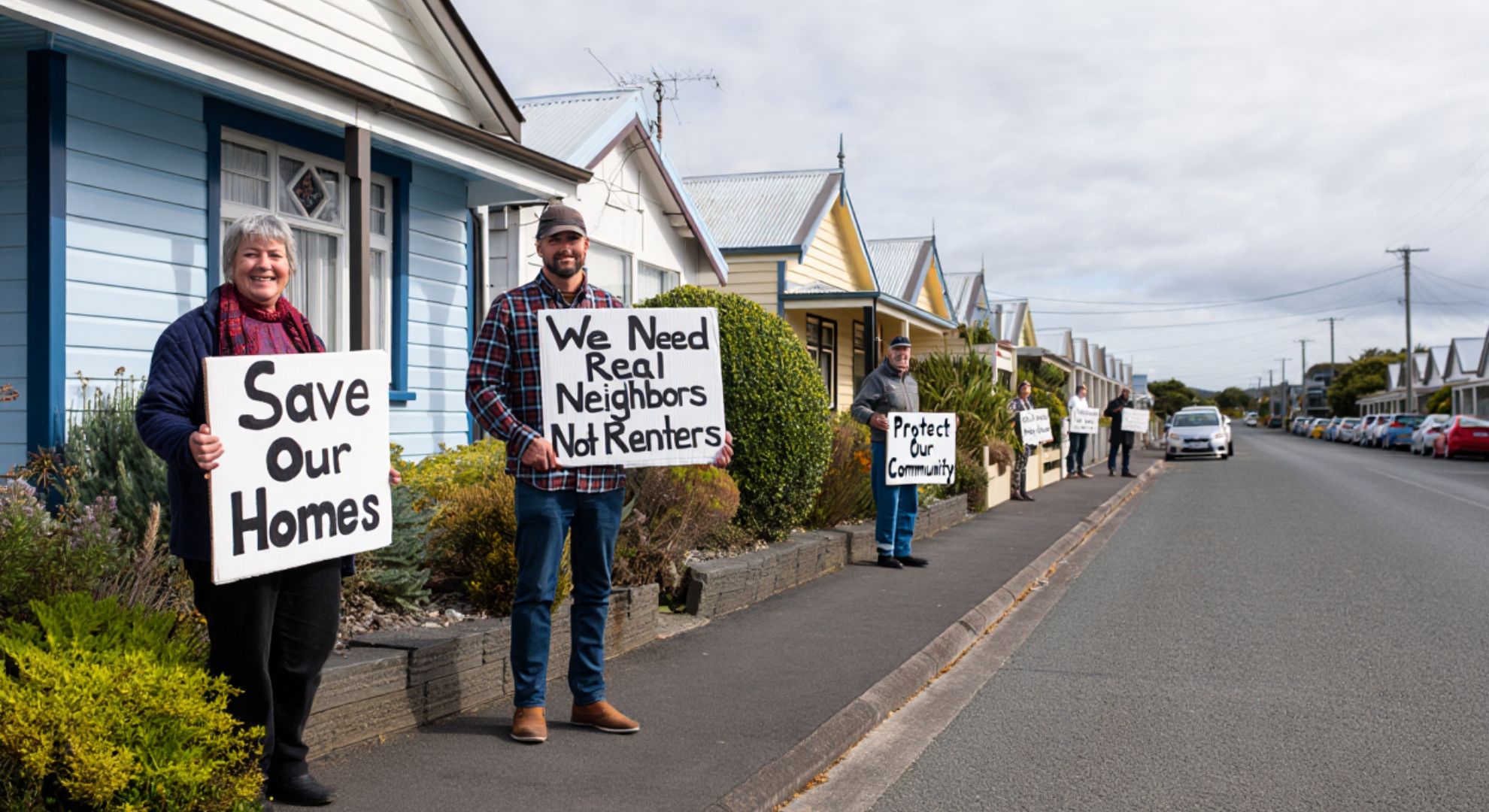The coastal settlement at the base of Mount Taranaki is wrestling with a question that cities from Lisbon to Los Angeles have tried to answer: how to balance visitor demand with local life. After a summer of packed beaches and skyrocketing rents, elected members are weighing a rule that could prohibit short-stay listings in most residential streets. Supporters call it an essential shield for families squeezed by limited supply, while critics warn it would hobble a fragile tourism economy. The debate is as much about identity as income—who gets to live here, and on what terms.
What’s driving the push
For a town with a few thousand residents, even a small shift of homes into holiday lettings can bend the market out of shape. Property managers report fewer long-term rentals, and those that remain carry higher prices than a year ago. Teachers speak of students forced to move midterm, because a landlord pivoted to weekend bookings. A local nurse put it plainly: “When your colleagues are sleeping in cars, something is deeply broken.”
The council’s planning staff say the housing pipeline is thin, and the construction sector faces cost spikes and labour shortages. With supply constrained, each dwelling taken by a short-stay platform makes a bigger dent than it might in a large city. “We’re not anti-visitor,” a councillor said, “we’re pro-neighbourhood.”
Voices from the community
On the main street, some shopkeepers depend on weekend traffic, and they see risk in sweeping restrictions. “Visitors keep the lights on in winter,” said Hana, who runs a surf café near the dunes. “A total ban would be a blow to off-season cashflow.”
Others feel the town’s social fabric is fraying as familiar faces are replaced by rolling suitcases. “It’s hard to build a club or a kids’ sports team when people are always transient,” said Moana, a volunteer coach. A small coalition of hosts argues for rules, not elimination, pointing to noise and parking standards they already follow. “Give us a cap and clear expectations, and we’ll work with you,” one host told a packed meeting.
What the data suggests
Analysts who study short-stay markets note that policy outcomes vary by context. In places with tight housing stocks, restrictions can ease pressure over a few years. In regions reliant on destination spending, curbs can hurt seasonal jobs if not paired with alternatives.
Here’s a simple comparison the council is circulating, summarising three policy paths and their likely effects:
| Policy Option | Housing Availability | Local Business Revenue | Neighbourhood Impacts | Administrative Complexity |
|---|---|---|---|---|
| Full Prohibition | High increase | Sharp decline | Fewer party issues | Low to moderate |
| Cap + Registration | Moderate increase | Modest decline | Better enforcement | High |
| Status Quo | Continued losses | Short-term gains | Ongoing nuisances | Low |
Officials stress the trade-offs are real, and no single lever fixes every problem. But they also note that doing nothing has a cost measured in displacement and community drift.
Possible paths forward
A ban is the headline, but the draft rule is more nuanced. It would allow hosted rooms where the owner is on-site, while restricting whole-home lets in standard residential zones. Exceptions could apply in mixed-use streets, with hard caps and registration. Enforcement would rely on data-sharing agreements, spot checks, and escalating fines for repeated breaches.
The council is also eyeing complementary steps, because regulation without supply is a half-measure. Early proposals include rate relief for long-term leases, incentives for secondary dwellings, and targeted infrastructure funding to unlock buildable land. “The housing answer can’t be a single bylaw,” the mayor said during a community hui.
- Proposed guardrails include an annual cap on nights, a live-in host requirement for rooms, mandatory registration with visible IDs, and platform-level penalties for unlisted or non-compliant properties.
The human stakes
Behind the policy are everyday stories. A new midwife couldn’t find a flat, turned down the job, and the clinic stretched its roster for another month. A family who grew up here sold and moved inland, priced out by a wave of investors chasing weekend yields. Yet a retired couple say their spare room’s income pays rising rates, and without it they might have to sell.
“I don’t want to shut doors to guests,” said Wiremu, a local teacher, “but I also want my students to have a street that feels like a home.”
The bigger picture
What happens here will ripple through the region, which shares the same mix of tight housing and seasonal visitors. Other councils are watching for evidence that targeted rules can preserve community life without starving small businesses. The crux is balance—enough visitor beds to support cafés and surf schools, enough secure rentals for nurses, teachers, and tradies to stay.
As the consultation window opens, submissions are pouring in with detailed views and unexpected alliances. One thing is clear to almost everyone: the town’s greatest asset isn’t scenery or clever branding, but the steady presence of people who call it home all year round.
